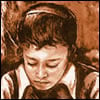It would seem that we do. Even if we manage to avoid saying outright untruths, there seems to be something intrinsically dishonest in the process we call “education.”
We award a candy to the toddler who remembers to go sit on the potty. We promise the second grader that we’ll buy her the longed-for bicycle if she gets enough A’s on her report card. We threaten to suspend the allowance of the 12-year-old who won’t clean his room. We remind our teenager that if he’s caught drinking and driving, he’ll probably go to jail.
Essentially, we tell our children that the reason for their toilet training is to acquire squares of chocolate, that the purpose of learning is a two-wheeled chrome-and-plastic dream, that orderliness and cleanliness are means of earning pocket money, and that it’s wrong to drink and drive because you may end up in prison.
(Oh, I know that there are enlightened parents who’ve renounced the primitive carrot-and-stick method of raising children. I overhear them in restaurants explaining to their three-year-olds, in mature, adult language, why it isn’t socially acceptable to landscape our mashed potatoes with our fingers. I admire these mothers and fathers for their patience and faith in their children. But I suspect that their approach has its limitations. I imagine that if after two hours of mature discussion the skeptical offspring remains unconvinced, the enlightened parent will say something like, “Well, Junior, one day you’ll understand why you should wait for the light to turn green before you cross the street. In the meantime, you will do so because your parents, who have lived long enough to understand why, have instructed you to do so, and will not let you go out to play with your friends if you do not abide by these instructions.”)
But this is just one example of the lies we tell our children in the endeavor to educate them. Every step of the way, the process of “bringing down” the knowledge and values we wish to convey to their level inevitably involves abridgement, inaccuracy and simplification.
Well, one might say, it may be true that much of education is a lie of sorts, but it’s a necessary lie. Without these “lies,” by the time our child will have attained the intellectual and emotional maturity to comprehend the truth, he or she will be so saturated with negative habits that the truth will not affect him or her. The crucial thing is to get the child doing the right thing, even if it’s for the wrong reasons. As he matures, he will gradually outgrow his “childish” motives and come to appreciate the inherent good in goodness and the inherent bad in evil. And because this appreciation will be consistent with her learned behavior, she’ll now be doing the right thing for the right reason.
King Solomon, however, disagrees. In his Book of Proverbs (22:6), the wisest of men advises: “Educate the child in accordance with his way, so that also when he grows old he will not depart from it.” Isn’t there something wrong in this sentence? “Educate the child in accordance with his way”—that makes sense: we have no choice but to relate to the child on his level of maturity. But weren’t we saying that the point of it all is that he should depart from “his way” when he grows older?
But why are we talking about the “lies” we tell our children? Why don’t we speak about ourselves?
Have we ever done something, believed something, understood something, without discovering five, ten or twenty years down the line that we were wrong? Looking back, isn’t the belief always somewhat naive, the understanding somewhat lacking, the action just a wee bit misguided? For how could it be otherwise? We now know more, understand more, are more experienced than we then were. We now see nuances to which we were then blind; we are now sensitive to realities which then lay beyond the horizon of our soul.
We are constantly growing and evolving. So the only way to live our lives is to “educate” ourselves. We tell ourselves: this is right, this is wrong. Why? Because looking at our reality, measuring it against the accumulated wisdom that has been handed down to us, weighing the nuances in the scales of our minds, hearts and souls as we now posses them, we reach the conclusion that X is good and Y is bad.
And when a voice rises in us to protest, “Wait a minute! That’s how you see it now. But in ten years you’ll know better. Don’t you realize now how wrong you were ten years ago? You’re living a lie!”—we answer that voice: “No, my life is not a lie. It is true, because I am living the truth of my utmost potential. I am a living being, a growing thing. And my Creator, who imbued me with the gift of life, also commanded me to be good. This means that a living, growing thing can be good—by attaining the utmost limit of the goodness it is capable of comprehending and actualizing, all the while acknowledging that there exists a greater good and a truer truth towards which it must continue to strive.”
This is “the way” from which the child should never depart. If ever there comes a time at which we believe our education to have ended, if ever there comes a point at which we say, “My life up to now was a lie, but now I know”—this is the greatest untruth of all. Rather, we should always say: “I am a finite being, yet I am also infinite, in the sense that I am always maturing. Recognizing and cultivating goodness is never a lie; it is always true, as long as it does not fall short of the true potential of what I now am, and as long as I never cease to attain my utmost truth as I grow beyond yesterday’s truth.”
This is what we teach our toddler when we reward her with a piece of chocolate for sharing a toy with a friend. In the universe inhabited by her two-year-old mind, a square inch of sweetness and yumminess is the epitome of good. So we’ve taught her that sharing is good. Is hers a “false” conception of good? No more false than our own conception of good in this particular point of our development. And yet, her two-year-old mind also knows that there’s a good beyond her good. It knows that she is “little” and that Mommy and Daddy are “bigger” than she, and she wants to be bigger, too.
If our 25- or 40- or 80-year-old mind knows this as well, then we’ve been educated as King Solomon says we should be educated. We’ve been taught to relate to goodness “in accordance with our way,” and we’ve kept on journeying along this path also when we’ve grown old.













Join the Discussion